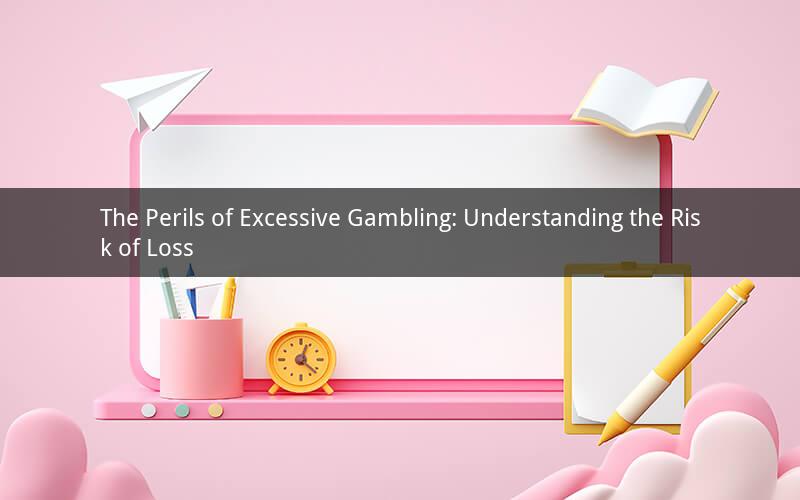
Gambling has long been a popular form of entertainment, offering the allure of winning big. However, it is crucial to recognize the potential dangers associated with excessive gambling, particularly the risk of losing more than one can afford. This article delves into the topic of how much is too much to lose in gambling, exploring the psychological and financial consequences of overspending on this activity.
Understanding the Risk of Excessive Gambling
1. The Psychology of Loss
When individuals engage in gambling, they often experience a surge of excitement and anticipation. This adrenaline rush can lead to a disregard for the potential consequences of their actions. The psychological aspect of gambling involves the pursuit of pleasure and the desire to win, which can sometimes overshadow the reality of potential losses.
2. Financial Consequences
Excessive gambling can have severe financial repercussions. The amount considered too much to lose varies from person to person, depending on their financial situation and spending habits. However, it is essential to establish a budget and stick to it to avoid financial ruin.
The Importance of Setting Limits
1. Budgeting and Self-Control
Establishing a budget is crucial in managing gambling expenses. It is essential to determine how much one can afford to lose and stick to that limit. Self-control plays a significant role in preventing overspending and the risk of financial distress.
2. Recognizing the Warning Signs
It is vital to be aware of the warning signs of excessive gambling. These may include increased time spent on gambling activities, neglecting responsibilities, borrowing money to finance gambling, and feeling restless or irritable when not gambling. Recognizing these signs can help individuals seek help before the situation worsens.
The Impact of Excessive Gambling on Relationships
1. Strained Relationships
Excessive gambling can strain relationships with family and friends. The financial burden of gambling debts can lead to arguments, trust issues, and emotional distress. It is essential to maintain open communication and seek support from loved ones during challenging times.
2. Social Isolation
Gambling addiction can lead to social isolation, as individuals may withdraw from their usual social circles. The focus on gambling can hinder the ability to maintain healthy relationships and engage in other fulfilling activities. It is crucial to seek support from friends, family, or support groups to combat social isolation.
Legal and Ethical Implications of Excessive Gambling
1. Legal Consequences
Gambling addiction can lead to legal problems, such as theft, fraud, or embezzlement, as individuals turn to illegal means to finance their gambling habits. It is essential to be aware of the legal implications of excessive gambling and seek help to avoid falling into a criminal lifestyle.
2. Ethical Concerns
Excessive gambling raises ethical concerns, particularly when individuals prioritize their gambling activities over their responsibilities and well-being. It is crucial to prioritize ethical decision-making and prioritize one's health and financial stability.
5 Questions and Answers
1. What is considered excessive gambling?
Excessive gambling can be defined as engaging in gambling activities that disrupt one's financial stability, relationships, and overall well-being. It is essential to recognize when gambling becomes a problem and seek help before it escalates.
2. How can one prevent excessive gambling?
One can prevent excessive gambling by setting a budget, seeking support from friends and family, and being aware of the warning signs of addiction. It is crucial to maintain self-control and prioritize one's responsibilities over gambling activities.
3. Can excessive gambling lead to financial ruin?
Yes, excessive gambling can lead to financial ruin. The potential losses can accumulate rapidly, causing significant financial stress and long-term consequences. It is vital to establish a budget and stick to it to avoid falling into debt.
4. How can one overcome a gambling addiction?
Overcoming a gambling addiction requires a combination of self-awareness, support from loved ones, and professional help. Seeking therapy, joining support groups, and developing healthy coping mechanisms can aid in overcoming the addiction.
5. Is it possible to gamble responsibly?
Yes, it is possible to gamble responsibly. This involves setting limits, being aware of the risks, and prioritizing one's well-being over gambling activities. Responsible gambling requires self-control and a commitment to maintaining a healthy balance between entertainment and financial stability.